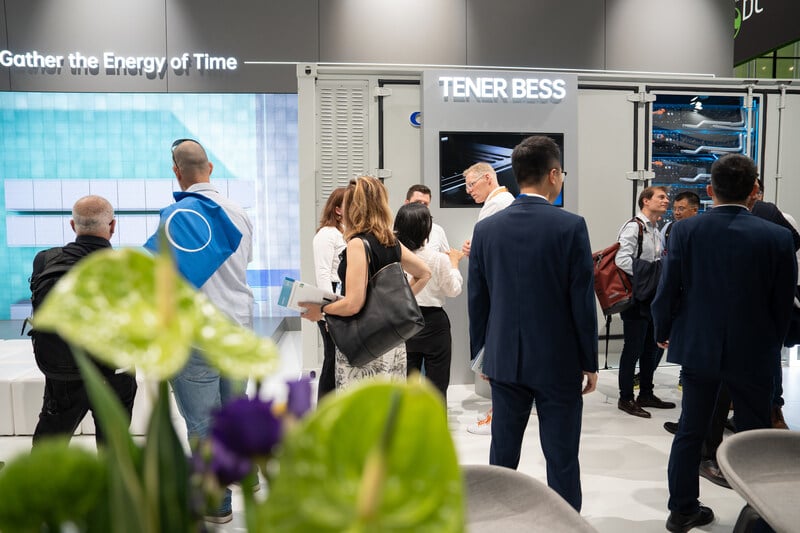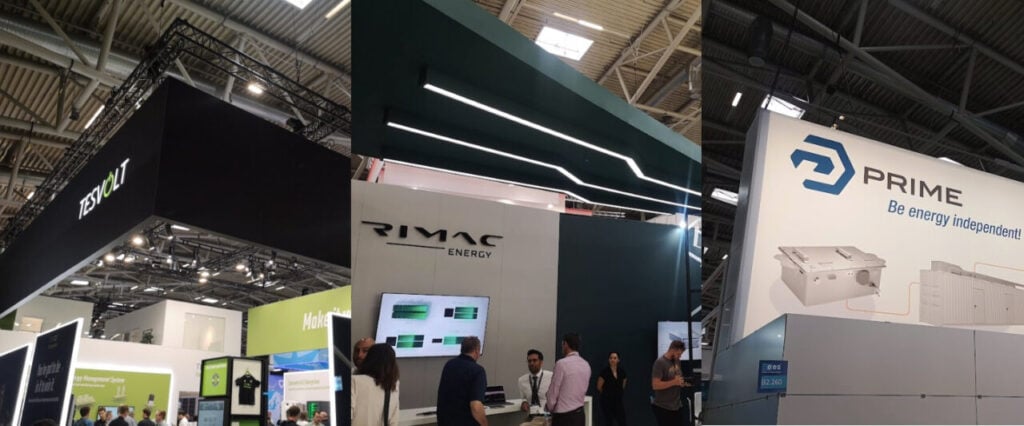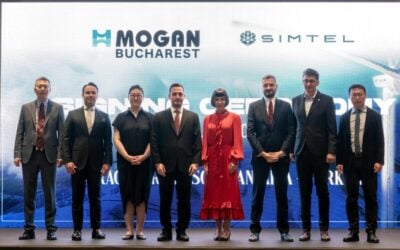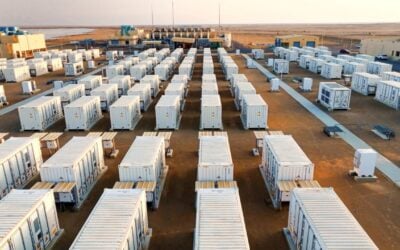
While Chinese companies dominated the square footage at ees Europe / Intersolar Europe in Munich last month, some project developers are still keen on prioritising products made closer to home.
Speaking to Energy-Storage.news at the week-long event, developer BayWa r.e.’s head of energy storage Julian Gerstner said: “Europe still has the chance to diversify its energy storage supply chain away from being solely reliant on one country. At BayWa r.e. we are focused on having a diversified supply chain for storage, it’s a really important point.”
Enjoy 12 months of exclusive analysis
- Regular insight and analysis of the industry’s biggest developments
- In-depth interviews with the industry’s leading figures
- Annual digital subscription to the PV Tech Power journal
- Discounts on Solar Media’s portfolio of events, in-person and virtual
Similarly, the developer behind what could easily be Europe’s largest BESS at 2.4GWh (in Belgium), Giga Storage, said it was keen to utilise companies based in Europe for its projects.
“We want to contract with Tier 1 suppliers, most likely players that are based in Europe. If we are going into projects for 15-20 years you want to make sure you don’t have issues during that time. If you go for a supplier far far away who’s going to pick up the phone to deal with problems? That’s why you want to do business with Western mentalities and Western parties,” Giga’s CCO Lars Rupert said, also at the event.
Though Rupert conceded that China is ahead of the market on parts of battery energy storage system (BESS) technology, and obviously dominates the battery cell market.
It comes as China-based companies gain an increasing share of the global BESS market, something first noted by research firms last year. Hand-in-hand with that has come a convergence to the 20-foot, 5MWh-plus form factor product, which Energy-Storage.news explored in a Premium article yesterday.
The topic of onshoring the solar PV supply chain to Europe meanwhile, a big one at Intersolar, has been covered extensively by our sister site PV Tech.
Several EU-based companies have stressed the importance of using locally manufactured and integrated technologies for BESS projects. That includes the company behind Romania’s largest BESS, Prime Batteries, while Germany-based system integrator Tesvolt adamantly told Energy-Storage.news in an interview at the event that “we’re expanding here and will not move to another country. The market is accelerating and there is more and more competition from Asia and especially China.”
Both Prime and Tesvolt were exhibiting at the event, along with other companies that position themselves as having European intellectual property and supply chains at their core, like Rimac Energy.

On the battery cell manufacturing side, the EU recently passed its Net-Zero Industry Act (NZIA), at a time of mixed fortunes for local battery gigafactory projects, as Energy-Storage.news covered at the time. Since then, the company which has raised by far the most capital to build batteries in Europe, Northvolt, lost a US$2 billion contract with BMW after the automaker pulled out of the deal due to delays in Northvolt’s ramp-up.
Europe needs to compete with the US’ incentives for both BESS and battery cell manufacturing in attracting capital to its supply chain. France-headquartered system integrator Saft’s Michael Lippert told Energy-Storage.news that the firm will start manufacturing in the US later this year to reach a ‘significant domestic content’ portion for projects there, for example. “It’s complex and we’ll reveal more details at RE+ later in September,” he said.
On the battery cell side, Saft, in tandem with parent company TotalEnergies, is investing in European manufacturing via a stake in Automotive Cells Company (ACC), along with automotive OEMs Stellantis and Mercedes-Benz. Lippert did not mention any plans to launch BESS manufacturing in Europe, however.






